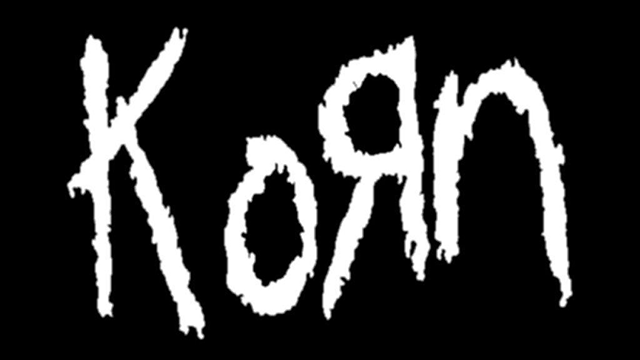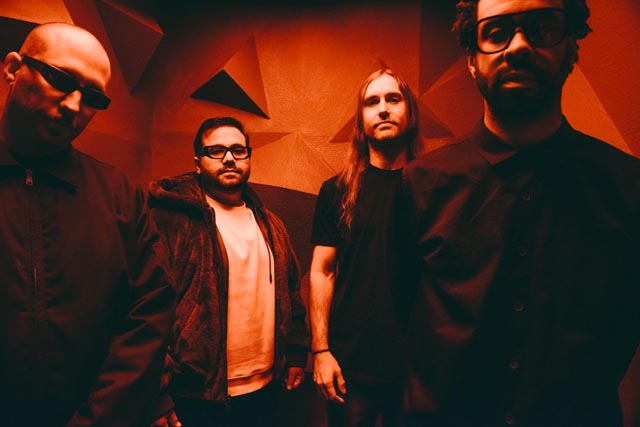[youtube]http://youtu.be/QQJge9ZNEWs[/youtube] Jonathan Davis is used to working in different genres than the hard rock one that his band Korn occupies. The band’s 2011 album, The Path of Totality, alienated some fans with its diversion into dubstep, and Davis has an EDM alter ego as JDevil. But he’s also worked on film scores, like 2002’s Queen of the Damned. Now, with the help of composer Nicholas O’Toole, he’s back in the scoring world. Psychological thriller After the Dark, which opens today, features a minimalist electronic score courtesy of Davis and O’Toole. We caught up with the pair to talk about how they came to collaborate on the film, what influences Davis, and how he separates his music between film and his band.
How did you guys wind up working together?
Nicholas O’ Toole: JD and I have known each other for quite a few years now. I was an assistant to a composer that Jonathan had worked with in the past when I came out to L.A. I started helping Jonathan with technical stuff in the studio. Then I started building home studio gear specifically for scoring. We kept vibing, and eventually it became clear that he wanted to continue on with film score. I had a lot of ambition, and he did too. Eventually, we just linked up and decided to give it a go.
What kind of work were you doing on the road?
N: Jonathan wanted a writing rig. Remember that big, heavy system you used to carry?
JD: Yeah, this was before you could have an actual studio on a Mac computer. In the old days, I would have the couch of the bus taken out, and we built racks, it would be my studio bus, and helped put that all together.
How did you find After the Dark? Were you approached?
N: We were approached by the producers. I knew one of the producers from from a previous project, and he came to me saying that he had this film, and they’d been talking about Jonathan, they thought that it would be a good fit. Finally, I met with the director/writer, John Huddles, and we hit it off. It was very smooth sailing from there.
What goes into scoring a film, specifically? Do you watch it and get free reign over what to do with it, or are you told specifically what they’re going for?
JD: That’s exactly how it goes, it’s very specific as to what the director wants.
Jonathan, you’ve scored films before, with Queen of the Damned. How does this differ from that?
JD: It’s so different. There are no rules. Where I come from, the rock world, you’ve got verses and choruses, shit like that. In film scoring, you’re trying to convey emotion, or something that’s going on at some point that pops up. It’s not really conventional when you’re used to writing songs. For me, that’s what really got me into it, because it’s so difficult and a completely different kind of art form for me. It’s inspiring for me, because I like to be challenged, and it’s definitely a big challenge.
And as a DJ (JDevil), did you bring your EDM influence into it at all?
JD: It influenced the way I produce and write. Using equipment like Pro Tools made it a lot easier than it was way back in the day. Back then, you had to have five samplers and all kind of other equipment – it was crazy, and now it’s a lot easier.
When you’re writing, are you able to compartmentalize and say ‘this will work for Korn,’ or “I’m holding on to this one for a film?’
JD: When I write, I just write. There are ideas that come out. I have a catalogue of hundreds and hundreds of ideas because I constantly write, I write every day. Ideas can wind up in a score piece or a Korn song, it doesn’t matter, as long as I’m being creative.
Nicholas, you’ve worked with Slash before. How difficult is it to collaborate with different artists?
N: Film scoring is very specific. I’ve got a degree in it and I’ve done a lot of films. I don’t come from the rock world in the sense that I’ve been in bands. I come from the scoring side and I’m very emotionally involved…
JD: He’s an uppity cracker (laughs)
N: That’s exactly right, I’m an emotional manipulator (laughs). Working alone is one thing, but working with Jonathan is a completely different vibe. He’s very thematic and his EDM sensibilities certainly were in play, because the score for After the Dark has a heavy minimalist electronic score. I can definitely tell you it’s a different vibe – it’s sharing a brain with someone that thinks completely different from you.
Has working with musicians like Slash and Jonathan given you any desire to be in a band?
N: Not really. I worked my way through college in a band and I had a lot of fun doing it, but I’m a behind the scenes guy. I like to play, and I like to play in my studio, and I like to work with people like Jonathan so I can live vicariously through him. And I’ve always like rock. JD and IU hav a lot of the same influences, like Pink Floyd and the ethereal stuff that translates well to film. But I’m happy where I am. I like introducing people to film score and I like working with rockers on film scores. It’s a different way to go about it, and things happen that wouldn’t normally happen.
Do you think you’ll collaborate with each other in the future?
JD: Oh, totally.
N: This is not a new relationship. Jonathan and I have known each other for a while, and this is the start of something.
And Jonathan, I have to end by asking you if the rumors flying around about Korn being on the Mayhem Festival this year are correct.
JD: I don’t know if I can confirm or deny it. I don’t know yet. I get in trouble when I say shit sometimes, so I have no comment!











